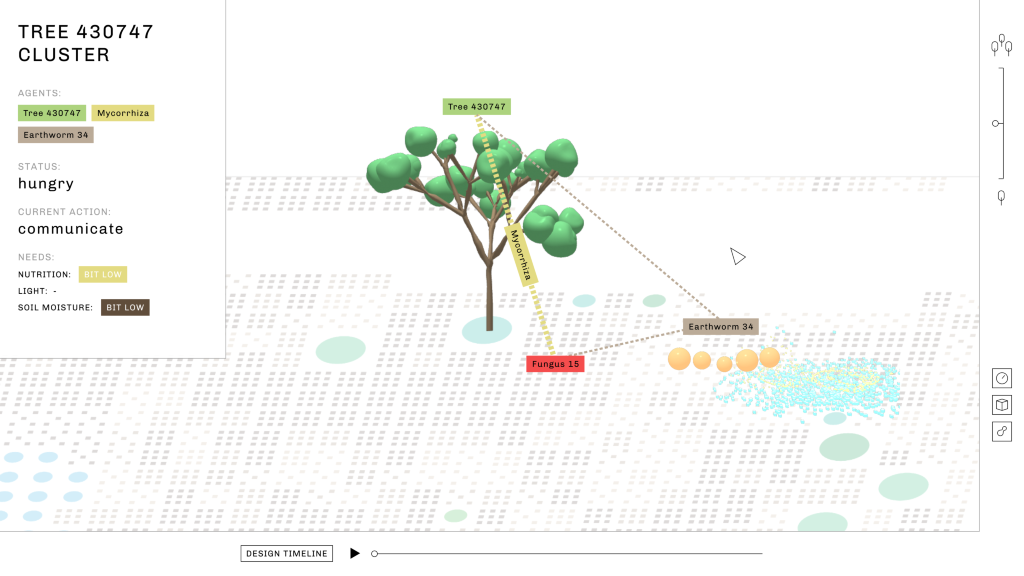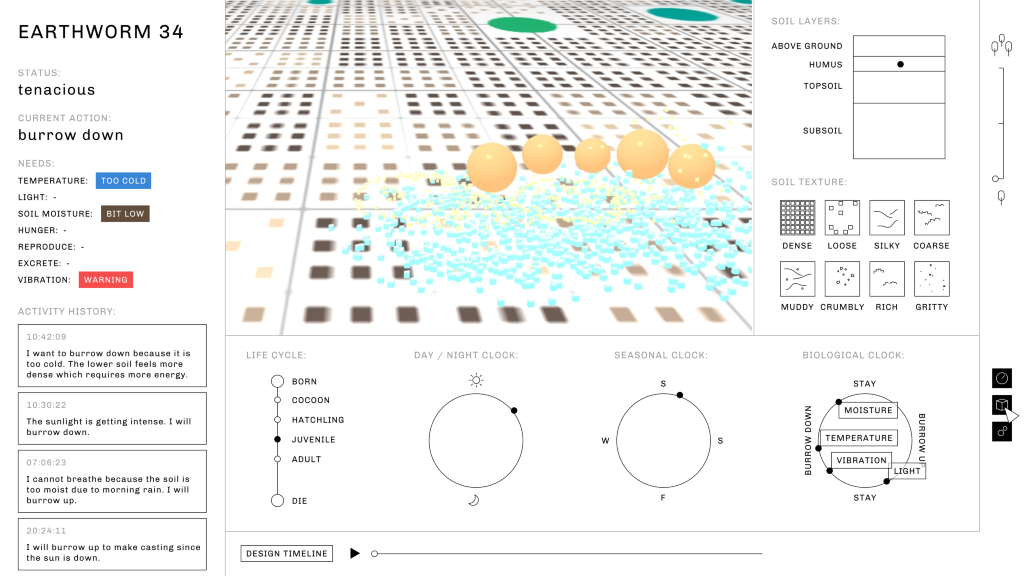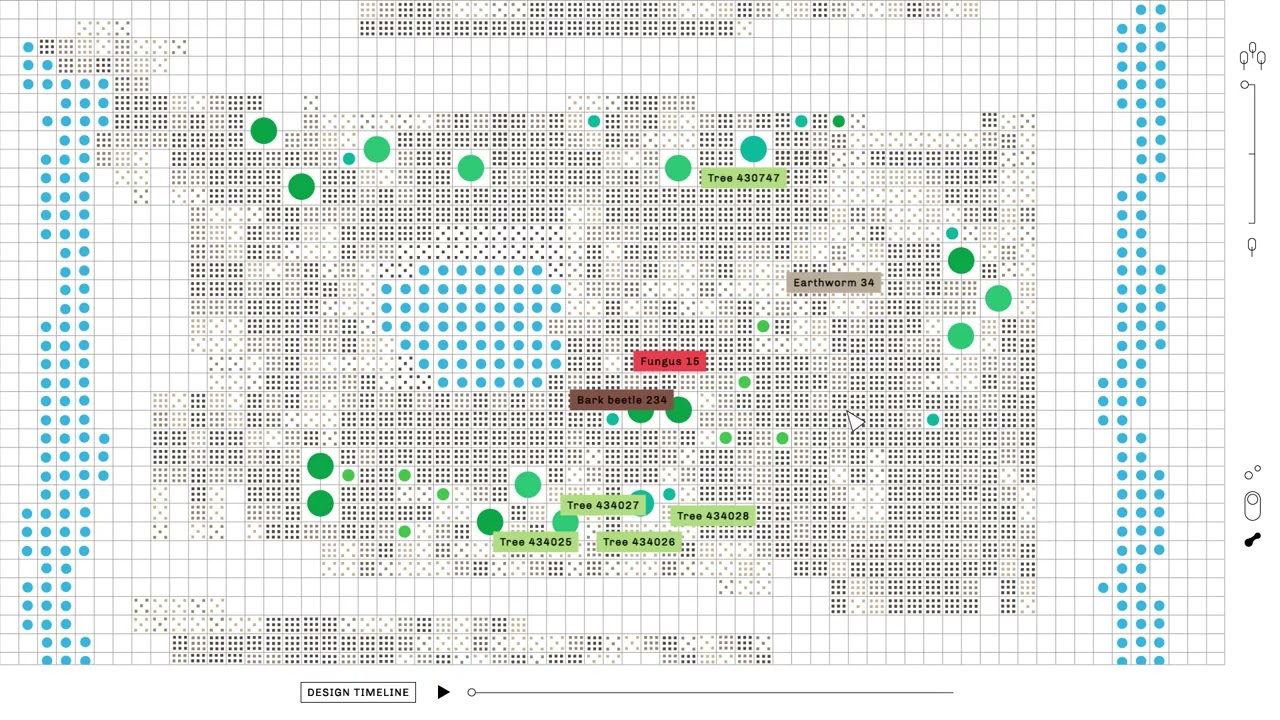Seowoo Nam
The project takes a more-than-human approach in remodeling the urban forest and designing a simulation platform. How can we imagine healthier futures for us-with-the-forest?
Urban forests are now digitalized as smart green infrastructures to mitigate environmental change. Cities are proactively planting and replacing trees considering their future ecosystem benefits, such as carbon sequestration, urban heat reduction, and water retention. Digital twin simulation is a key technology enabling this mode of governance, which generates future scenarios under various management schemes. These data inform decisions on tree selection and placement, thereby shaping forests into uniquely efficient and responsive urban organisms. Despite its positive prospects, however, the underlying ontologies of these digital forests are rarely questioned, often lacking consideration for the flora and fauna inhabiting the forests. The models built upon anthropocentric biases and values pose a risk of selectively consolidating futures where the forests are optimized only for humans, which does not always guarantee the same good future for multi-species living.
Acknowledging that humans coexist with other forms of life, Eco-Urban Futures takes a more-than-human approach in designing the computational model and a simulation platform. In the design process, the notion of more-than-human bodies was used as a strong concept to explore alternative modes of making sense of and acting upon data toward more-than-human forest governance. The designed interface enables users to navigate the forest data across diverse temporal, spatial, and agential scales, thereby urging policymakers, urban planners, and citizens to reimagine healthier futures for us-with-the-forest. For example, in the platform, the user can design their own timeline with diverse cyclical and biological clocks to curate the events in the simulation. Moreover, the forest data is interpreted and shown from the perspectives of certain species or clusters, rather than graphs or numerical values.
This project contributes to the more-than-human design and HCI by bridging post-humanist theories with decentering methodologies, strong concepts, and interface designs, all geared towards more-than-human forest governance. In an age brimming with pervasive digital technologies and pressing environmental challenges, Eco-urban Futures opens up many starting points to reshape our relationships with data, trees, multispecies, forests, and perhaps ourselves.






